How to Know If You Need Inpatient Mental Health Treatment
Table of Contents
How to Know You Need Inpatient Mental Health Treatment
If your mental health has been deteriorating or even spiraling out of control, you are right to be concerned. If despite seeing a therapist on a regular basis your mental state is worsening, it’s time for more intensive support. Inpatient treatment involves a time commitment but provides a much higher level of care. If you’re asking how to know you need inpatient mental health treatment, please read on.
What is Inpatient Mental Health Treatment?
Inpatient mental health treatment is also referred to as residential treatment. A residential mental health program is exactly that, a private estate that houses a small number of patients. Residential programs offer a homelike experience, with private bedrooms and many upscale amenities that create a comfortable environment.
Inpatient is a step up in care from outpatient treatment. An outpatient program requires a certain number of weekly treatment hours, but after treatment the person returns home. The residential treatment center requires the person to stay in the provided housing through the duration of the program. This allows the individual to have access to mental health support 24/7 during their stay.
Signs You Need Inpatient Treatment
Wondering how to know you need inpatient mental health treatment? In most cases, the signs of worsening mental health are noticeable. Even if you aren’t aware of the changes in your mental health status, your friends or loved ones will likely notice.
A mental health crisis or breakdown may come on gradually or it might erupt without warning. The severity of the symptoms will determine the type of inpatient care needed, a hospital setting versus a residential treatment center.
Here are symptoms of deteriorating mental health:
- Mental health has not improved with outpatient treatment
- Impairment in functioning at work or home
- Changes in sleep patterns
- Nightmares
- Mental confusion
- Severe mood swings
- Manic episodes
- Withdrawing from friends and family
- Angry outburst
- Self-harming behaviors
- Personality changes
- Loss of interest in appearance or hygiene
- Sudden decline in work performance
- Sudden weight loss or gain
- Violent behaviors
- Paranoid thoughts
- Emotional numbness
- At risk of harm to self or others
In some cases, a hospital stay may be necessary, such as violent behaviors, suicide attempts, or experiencing a psychotic break. The hospital will isolate and monitor the person until they have been stabilized. After that is accomplished, they can be transferred to a residential treatment center.

What Triggers a Mental Breakdown?
The onset of an acute mental health event like a nervous breakdown is characterized by an elevation of mental health disorder symptoms and impairment. In the most extreme cases, the individual has become a risk to themselves or others. The mental health crisis occurs when the individual becomes overwhelmed and is no longer able to manage their emotional stress.
There are many factors that can trigger significant deterioration of mental health. These may include:
- An existing mental health disorder that suddenly worsens
- A high-stress job with unrelenting demands that results in loss of sleep
- A sudden or unexpected death of a loved one
- Being the victim of ongoing sexual or physical abuse
- Experiencing serious financial difficulties
- Having a family history of mental illness
- Suffering from a serious or chronic medical condition
- Going through a difficult life event, like a divorce or child custody battle
What is a Voluntary Admission?
Do you need to be admitted to a mental health treatment center against your will? Can you enter a treatment program voluntarily? How to know you need inpatient mental health treatment, such as through a psychological evaluation, can help guide these decisions.
Maybe your mental health has worsened to the point where you struggle to manage the demands of daily life. If so, it is best to admit yourself to treatment voluntarily. Enrolling in a residential treatment program on your own will is a much better option than having someone force you into treatment.
With voluntary admission you are taking care of your mental health by choice. This provides you with a sense of ownership and control over your situation. You will be more willing to participate in therapy and group discussions than if someone admitted you against your will.
What Are the Benefits of Inpatient Mental Health Treatment?
While outpatient mental health treatment offers support and treatment to many people, it isn’t the best option for everyone. There are several advantages of a residential treatment program versus outpatient. These include:
- Allow you to a break from stress-inducing triggers. The residential setting offers you the time and space to focus on your recovery while taking a break from daily stressors.
- Provides structure and predictability. The treatment center features a predictable daily schedule of activities and therapies, giving you a sense of peace.
- Promotes healthy daily routines. While staying at the treatment center you establish new healthy routines, such as regular mealtimes, daily exercise, and holistic activities.
- Provides tailored, multi-disciplinary treatment. A residential program can design a personalized treatment plan with the right combination of treatment elements for you.
- Allows you to build a support system. Group therapy sessions allow you to form bonds with peers facing similar challenges who can provide additional emotional support.
What to Expect at an Inpatient Treatment Center
If you have made the decision to enroll in a residential treatment program, you may wonder what to expect when you get there. Having a general idea of the daily therapeutic schedule can help to relieve some of the anxiety you’re feeling.
Once you have completed the intake process, you will be joined by a team member who can show you around the premises. They will point out the gathering spaces, outdoor spaces, kitchen and dining area, and guide you to your bedroom and bath.
The daily schedule will include a mix of the following elements:
- Therapy. Psychotherapy sessions allow you to work one on one with a licensed therapist who can guide you in gaining healthy new insights and behaviors. These will be tailored to address your specific mental health needs and often involve several types of therapy.
- Group therapy. Group sessions involve topic discussions among peers. The facilitator provides the topic and guides the conversation.
- Classes. Classes in life skills, interpersonal skills, and coping skills help to reinforce what you learn in therapy.
- Holistic. Activities that promote relaxation include yoga, art therapy, meditation, massage, and grounding.
- Wellness. Nutrient-rich meals and daily exercise improve brain health and healing.
Robles Ranch Mental Health Residential Mental Health Treatment
If you were wondering how to know you need impatient mental health treatment, hopefully this article has provided clarity. Please don’t suffer from a mental health challenge needlessly. Reach out to us at Robles Ranch for support today at (866) 840-3841.




